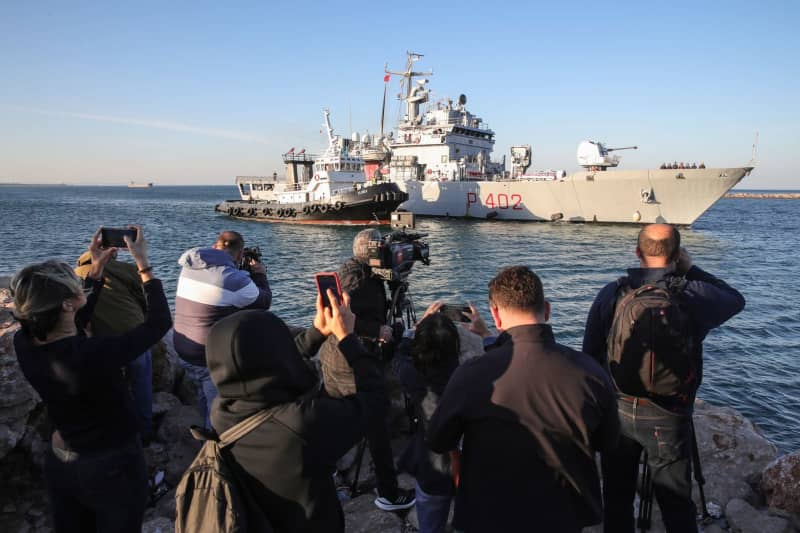The Italian right-wing government, led by Prime Minister Giorgia Meloni, is steadfast in its commitment to pursue the controversial policy of processing asylum applications outside the EU, despite facing a legal setback. Recently, a court in Rome mandated that 12 migrants, who were supposed to have their applications processed in Albania, must be brought back to Italy. This decision highlights the legal challenges confronting Meloni’s administration as it attempts to implement its migration agenda through new facilities in Albania. In light of this ruling, Meloni’s government stated its intent to appeal and convened a special cabinet meeting to formulate its next steps. Italy is now the first EU country to establish refugee centers beyond its borders, a move viewed with skepticism by both legal authorities and political opponents.
The court’s ruling was based on the consideration that the 12 migrants originated from countries classified as unsafe—specifically Egypt and Bangladesh—rendering them ineligible for the newly established migration scheme. This decision sparked controversy, with Meloni and her coalition of right-wing parties asserting that safety determinations should be made by the government, not the judiciary. Meloni’s remarks reflect a broader ideology within her party, Brothers of Italy, favoring a more stringent and unilateral approach to immigration policy. As the legal proceedings unfold, the Italian coast guard facilitated the transfer of the migrants from Albania back to Italy, underlining the immediate implications of the court’s decision and the precarious nature of the government’s plans.
Initially, 16 migrants were intercepted in the Mediterranean, with four granted exemptions to bypass the Albanian processing due to their status as minors or individuals with significant health concerns. This indicates that while the government aims to limit arrivals through offshore processing, there are still humanitarian considerations being taken into account regarding vulnerable populations. The aim is to fast-track the examination of asylum applications in Albania by Italian officials, where those granted asylum can ultimately relocate to Italy while unsuccessful applicants face repatriation. This strategy underscores the government’s intention to manage and reduce the number of migrants reaching Italy’s borders.
Critics, including various opposition parties, have condemned Meloni’s attempt to decentralize asylum processing as a significant failure in addressing the complexities of migration and humanitarian obligations. By outsourcing the assessment of asylum claims to Albania, detractors question the efficacy and ethical implications of such a model, particularly concerning the treatment of migrants. These concerns are compounded by the reality that only adult men from deemed safe countries will be sent to the camps, with exceptions made for women, children, the ill, and torture survivors, who are allowed to enter Italy directly. This selective approach raises questions about equality and fairness in processing asylum seekers, an issue that resonates deeply across the political spectrum.
The newly established facilities in Albania are projected to accommodate up to 3,000 asylum seekers at a time, but the scope of this plan has been met with mixed responses from EU member states. Many EU countries are closely monitoring Italy’s policies, as they reflect broader trends in Europe regarding migration management and border control. The implications of Italy’s actions may influence other nations’ approaches to similar challenges, revealing a potentially contentious divide between those advocating for stricter border policies and those supporting more inclusive humanitarian responses. The response from other EU nations could shape the dialogue around asylum policy, particularly as migration continues to be a pressing issue on the continent.
Overall, the ongoing legal battles, the controversial nature of Italy’s plans, and the broader implications for EU migration policy highlight the intricate interplay between national governance, judicial authority, and humanitarian obligations. As the situation develops, it remains to be seen how Italy’s strategy will evolve in the face of legal challenges, public opinion, and the practical realities of managing migration in a rapidly changing geopolitical landscape. Meloni’s government appears committed to its approach, signaling that the quest for a more rigid immigration framework will continue amidst the legal and social turbulence surrounding asylum processing both in Italy and within the broader European context.

